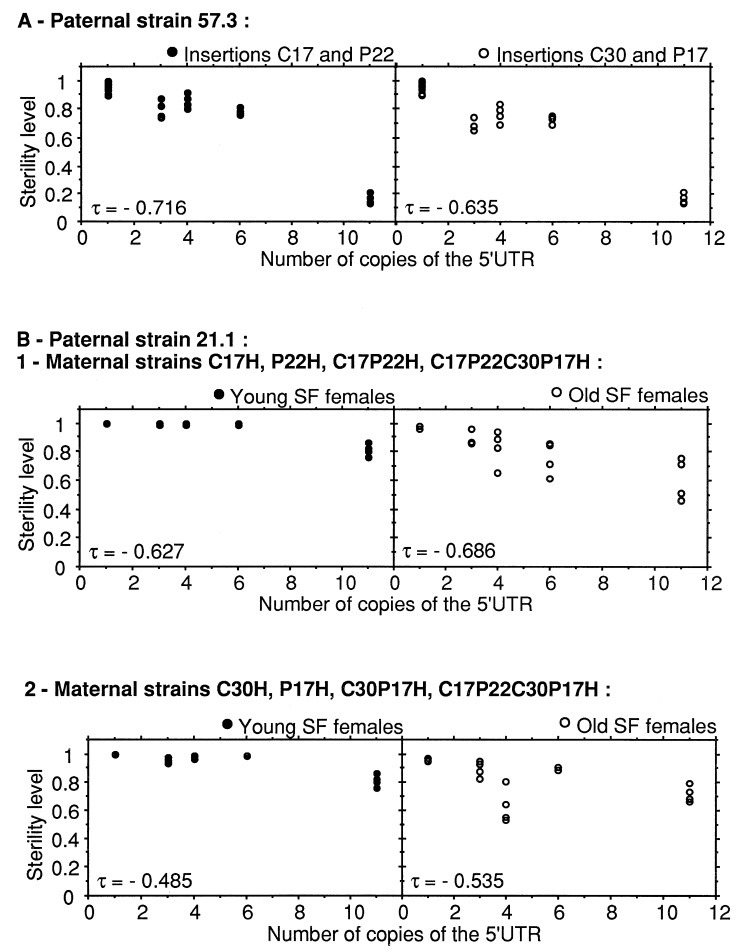Figure 3.
The effect of increasing doses of the 5′-UTR on the sterility of SF females. The vertical axis indicates the proportion of the eggs laid by SF females that did not hatch whereas the horizontal axis indicates the number of copies of the 5′-UTR per haploid genome. The SF females were produced by crossing males with a single active I factor with females of strains with 0, 2, 3, 5, or 10 copies per haploid genome as follows. Males with a single I factor were the sons of crosses between females of a reactive strain marked with y, w;CyO and males of the lines 21.1 or 57.3 carrying single I factors located on the second chromosome and linked to y+. Females of lines with varying numbers of copies of the 5′-UTR then were mated with the [y+; CyO] male progeny of this cross. (A) Proportion of unhatched eggs laid by 3- to 4-day-old SF females from crosses using males from strain 57.3. The black circles indicate the results for SF females derived from females of strains C17H, P22H, and C17P22H whereas the white circles indicate the results for SF females derived from females of strains C30H, P17H, and C30P17H. The final point (11 copies) was obtained by using females of strain C17P22C30P17H (Table 1). Kendall’s τ corrected for ties are −0.716 (P = 0.0001) and −0.635 (P = 0.0001), respectively. (B) Proportion of unhatched eggs laid by 3- to 4-day-old SF females derived from crosses using males from strain 21.1. The black circles are for eggs laid by 3- to 4-day-old females whereas the white circles are for eggs laid by 16- to 20-day-old females. (1) SF females derived from females of strains C17H, P22H, C17P22H, and C17P22C30P17H. Kendall’s τ corrected for ties are −0.627 (P = 0.0003) and −0.686 (P = 0.0001), respectively. (2) SF females derived from females of strains C30H, P17H, C30P17H, and C17P22C30P17H. Kendall’s τ corrected for ties are −0.485 (P = 0.0028) and −0.535 (P = 0.0014), respectively.

